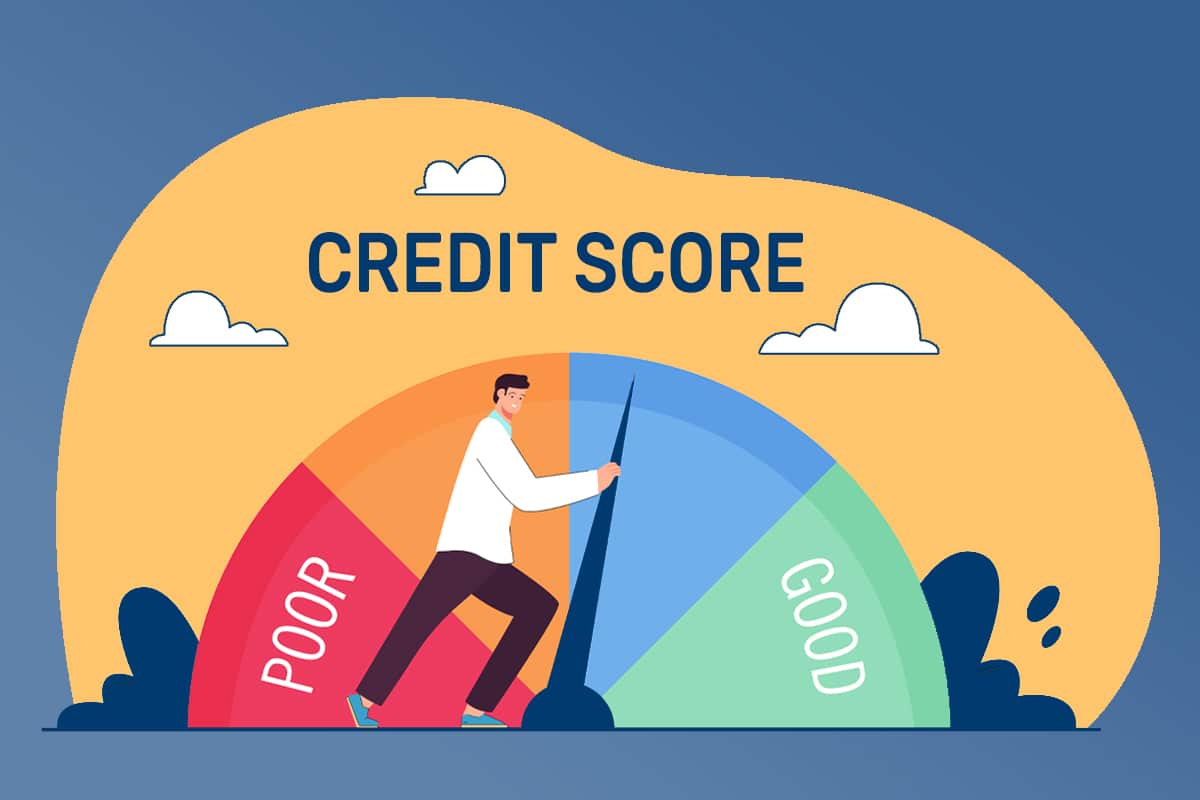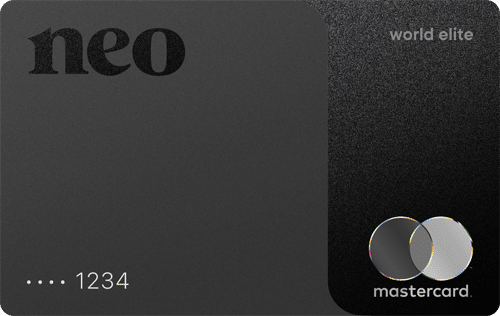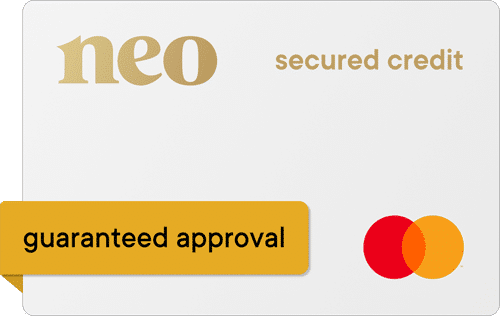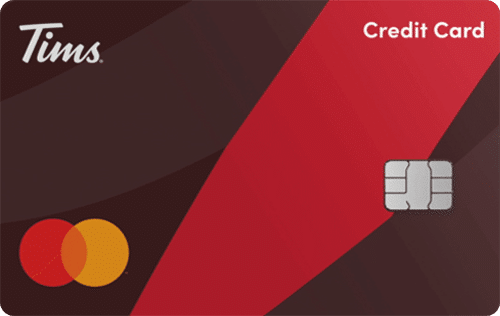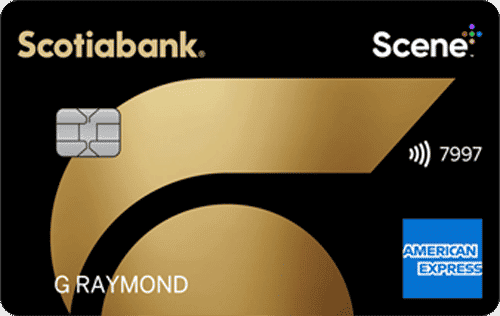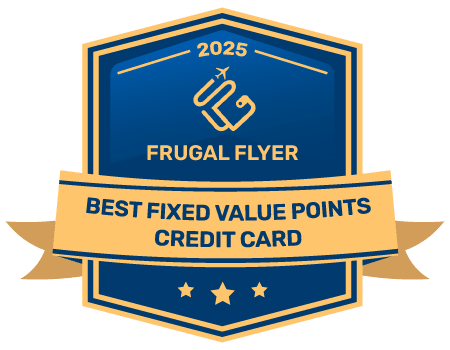In Canada, a good credit score is an essential foundation for healthy personal finance. This rings true for any Canadian, as it can affect not only approval odds for credit cards but also credit products like mortgages, personal or small business loans, and more. But it especially rings true for practitioners of miles and points, where the ability to get approved for multiple credit cards is paramount.
There are many factors that contribute to your credit score and credit history, which we’ve touched on in our article: Credit Scores: Everything You Need to Know. That article is essential reading for an understanding of what your credit score and credit history mean, how it’s calculated, and how to monitor it (including services like Borrowell, Credit Karma, and Clearscore). But what we didn’t specifically address in that article is how to improve your credit, including actionable steps you can take.
In this article we dive deeper into what can cause either poor or insufficient credit that might be leading you to credit application declines, and go over some products which can fast-track you to a better score and better credit profile to get you back on track.
Scenarios That Could Lead to Low or Insufficient Credit
Low or insufficient credit can arise from various financial behaviors and external factors. Although far from exhaustive, the following are a few of the key preventable situations that can leave your credit history with something to be desired.
Limited Credit History (Thin Credit File)
A person who has never taken out loans or used credit cards may not have enough credit history to generate a good credit rating. Young adults or recent immigrants often fall into this category because they have not yet built a credit profile. This becomes a “chicken or the egg” type of problem where it is difficult to get approved for new credit without a proven track record, but difficult to establish a track record without having any established credit products to your name.
Late or Missed Payments
As discussed in our pre-requisite article, credit scores are heavily influenced by payment history. Missing payments on credit cards, loans, or other credit obligations can significantly lower credit scores. Even a single late payment (30+ days past due) can have a negative impact. Always set reminders for yourself and stay on top of your credit card statement due dates to prevent this from happening.
Related: How to Change Your Credit Card Statement Date
Conversely, on-time payments are a big plus for your credit profile, and can significantly boost things for you. If you have one or several credit cards in your name but never put any spending on them, this can negatively impact your scores.
High Credit Utilization
Credit utilization is the ratio of credit you’ve used (ie how much spending on your credit cards) to the total credit extended to you. So if you have one credit card with a credit limit of $5,000 and you spend $2,500, your utilization for that month is 50%.
Using a high percentage of available credit (e.g. maxing out all your credit cards every month) can negatively impact credit scores. Keeping credit utilization below 30% of the credit limit is recommended.
Conversely, you don’t want your utilization to be 0% either. There is a goldilocks number somewhere in the realm of 10-20% that you should aim for. And if you find yourself regularly exceeding that number, it’s a good idea to apply for another credit card and start splitting your expenses between the two.
Defaulting on Loans or Accounts
If a borrower fails to repay a loan or credit card balance, the account may be sent to collections, which severely damages credit scores. Bankruptcies, foreclosures, or charge-offs remain on credit reports for years and lower creditworthiness.

Unfortunately if you’re in this situation, you have a long road ahead of you to building a trustworthy relationship with the financial institutions.
Closing Old Credit Accounts
The length of credit history, in terms of how long your accounts have been open for, can have a significant impact on your credit score. Closing older accounts can shorten your credit age or “average age of accounts” and reduce the available credit limit, which may lower scores.
It’s best to always keep at least a few of your oldest accounts open indefinitely (especially if they have a good payment history) to maintain a longer credit history.
Lack of Diverse Credit Types
Having a diverse mix of different types of credit can have a positive impact on your credit score and the “resilience” of your credit score. A credit mix of revolving credit (e.g., credit cards) and installment loans (e.g., auto or student loans) can positively impact credit scores. Having only one type of credit may result in a lower score due to limited credit experience.
General Tips for Credit Building
Monitor Your Payment History
Your payment history plays a crucial role in determining your credit score. To enhance your payment history:
- Always pay your bills on time.
- If you can’t pay the full amount, at least make the minimum payment.
- Reach out to your lender immediately if you anticipate difficulty in making a payment.
- Avoid missing a payment, even if you are disputing a bill.

Maximize Your Age of Accounts
There isn’t a whole lot that can be done to increase your average age of accounts other than playing the waiting game.
However, my best piece of advice is, if you haven’t already, take a look at your current credit card portfolio, and mark down how long you’ve had each of your cards. Your longest held card you definitely want to keep open forever, but if you have multiple cards with significantly longer histories, it can be wise to keep these cards open forever.
If any card has annual fees you no longer want to pay, consider product switching or “downgrading” the card to a no annual fee version so that you incur no cost to keep it open indefinitely.
Optimize Your Credit Limits
It may be obvious, but never exceed your credit limit. For instance, if your credit card has a $5,000 limit, staying within that limit is crucial. Borrowing beyond your approved amount can negatively impact your credit score.
Instead, aim to use less than 30% of your available credit. A higher credit limit with lower usage is more favorable. For example, if your credit card has a $5,000 limit and you typically borrow $1,000, your credit utilization rate is 20%.
Using a large portion of your available credit may make potential lenders perceive you as a higher risk, even if you pay off your balance in full each month before the due date. If you are spending closer to $2,000 every month on your $5,000 limit card (40% utilization), you want to either increase that card’s limit to $10,000, or apply for a second credit card with at least a $5,000 limit and split your spending between the two.
Diversify Your Credit
Your score may be lower if you only have one type of credit product, such as a credit card. Instead, it’s better to add other types of credit to your “credit mix”, such as:
- a credit card
- a car loan
- a line of credit
- a personal loan
- a mortgage
- Etc.
A mix of credit products may improve your credit score. But make sure you’re able to pay back any money you borrow or you may hurt your score by taking on too much debt.

If you don’t have a legitimate reason to get any of the alternative types of credit listed above, you can “artificially” add diversity to your credit report using some of the innovative types of credit builder products discussed in the next section, including credit builder programs and rent reporting services.
Specific Products for Credit Building
There are three main products designed specifically to assist with lower credit score applicants. These include: secured credit cards, credit builder products including loans and lines of credit, and rent reporting services.
Secured Credit Cards
Secured credit cards operate just like regular credit cards, except instead of being extended an amount of credit which is supported by the bank, you are required to put up your own cash deposit. The cash deposit acts as collateral ensuring the issuer is covered if you can’t make payments. This deposit also becomes your credit limit.
Importantly, the balance on most secured cards can be reported to the credit bureaus just like a regular credit card, which can help you build or improve your credit history. These are a great option for those who are having a tough time getting approved for new credit cards, for the reasons listed above.
There are a few secured credit cards that we really like at Frugal Flyer, including the Neo Secured World Elite Mastercard, the Neo Secured Mastercard, and the Secured Tims Mastercard.
Neo Secured World Elite Mastercard
The Neo Secured World Elite Mastercard offers guaranteed approval with no hard credit check, plus a base earning rate of 5% cash back on groceries, 4% on recurring bills, and 3% on gas purchases, with the option to increase earning rates by holding money in a Neo Everyday account.
In 2025, we selected this card to receive the award Best Secured Credit Card.
$0 cash back
$0
$100+
$125
Yes
–
The Neo Secured World Elite Mastercard has one of the highest cash back rates on grocery purchases, as it earns 5% cash back for every dollar spent on grocery purchases (up to $12,000 in spend per calendar year).
Cardholders can elevate their cash back earning rate on grocery purchases to 6% by holding a minimum balance of $5,000 in their Neo Everyday account, or 7% by holding $10,000 in their Neo Everyday account.
This card is easily the most powerful secured credit card in Canada. If you are interested in a secured credit card to build your credit, the Neo Secured World Elite Mastercard is the best choice, as it guarantees approval with no hard credit check.
Neo Secured Mastercard
The Neo Financial Secured Mastercard earns up to 5% cashback at partner retailers and offers guaranteed approval with only a $50 minimum deposit.
Check out our Neo Secured Credit Card review for more details.
$25 cash back
$0
$50+
$60
Yes
–
If you’re not eligible for the Neo Secured World Elite Mastercard, or not looking to pay an annual fee, the Neo Secured Mastercard is another good option from Neo. This card earns up to 5% cashback at partner retailers, with a base earning rate of 0.5% on all other purchases. It offers guaranteed approval with only a $50 minimum deposit.
Secured Tims® Mastercard
The Secured Tims® Mastercard helps customers build their credit history while earning Tims Rewards points. With a minimum security fund deposit of $50, this card earns you points everywhere you shop.
20 Tims Digital Gift Card
$0
$20+
$0
Yes
–
Another co-branded option for a secured credit card is the Secured Tims Mastercard. This card comes with an earn rate of up to 12 points per $1 at Tim Hortons® when you scan for Tims® Rewards. The minimum security fund deposit is only $50.
Credit Builder Programs
A credit builder program, typically a credit builder loan or line of credit, is a type of credit product designed specifically to help people build or improve their credit scores. Unlike traditional loans, you don’t get the money upfront. Instead, the lender holds the loan amount in a secured account while you make monthly payments.
Various institutions offer this type of product in Canada, each with slightly different payment structures, terms, and balance amounts that are reported, including from BMO, Borrowell, Kikoff, KOHO, and Spring Financial.
| Type | Cost | Loan Amount | Term | |
|---|---|---|---|---|
| Borrowell Credit Builder | Secured Installment Loan | APR from 18.64% to 26.46% | $806-$2,990 | 36 months |
| City Lending Centers | Installment Loan | $15/mo or $30/mo | $1,000 or $2,500 | Up to 120 months |
| Kikoff | Line of Credit | $10/month | $1,500-$3,750 | Monthly |
| KOHO Credit Building | Unsecured Line of Credit | $10/month or $60/6 months | $225 | Monthly |
| KOHO Secured Credit Building | Secured Line of Credit | $10/month or $60/6 months | $30-$500 | Monthly |
| Spring Financial ‘The Foundation’ | Tradeline Loan | $66 bi-weekly ($37 is non-recoverable) | $5,000 | 12 months |
We’ll discuss each of these products below in a bit more detail. Always read the fine print before signing up for these types of products, to make sure you understand the requirements and total cost you are paying, whether it be upfront fees or ongoing interest.
Borrowell Credit Builder
The Borrowell Credit Builder product is structured a little differently than other products in a way that is less flexible and less transparent. It is a secured installment loan, with a term of 36 months.
When you apply for the loan you will receive a loan amount up to a maximum of $2,990 with an annual percentage rate (APR) of 18.64% to 26.46%. Over the course of 36 months your payments will pay down the loan, and will get savings returned to you at the end.

This more traditional loan structure makes it a bit difficult to understand what you’re paying and how much you’ll get back, but the example on Borrowell’s website states that with a “$1,430 loan with a 36 month term at 21.65% APR and a bi-weekly payment of $25, the total repayment amount of principal and fees is $1,950 and the total cost of borrowing is $520.”
Borrowell Credit Builder is a little pricier and less straightforward than other products on the market, but it’s a good product nonetheless, and comes from a trusted name in Canadian personal finance.
Note that Borrowell Credit Builder is not available to residents of Saskatchewan, New Brunswick or Quebec.
Kikoff
Kikoff is structured as a revolving line of credit for either $1,500 or $3,750. It has a monthly cost of $10 for the Basic plan or $30 for the Premium plan. Each month your outstanding balance and monthly payments are reported to Equifax to help build payment history and lower credit utilization.

I currently have the Kikoff app set up for my Player 2, and it’s been the easiest to set up of all the credit builders I’ve tried. It has an online dashboard and mobile app where you can view your credit score and set up autopay for the subscription fee. It is really a “set it and forget it” type of product.
Kikoff is also the most “bang for your buck” with one of the larger credit lines available for one of the lowest monthly costs.
KOHO Credit Building
KOHO Credit Building is a service that establishes an unsecured line of credit for you with a balance of $250. Every month, payments are reported according to the utilization rate you set. The cost is simplified as a subscription, either $10 per month, or $60 for 6 months.

KOHO Credit Building can be easily set up by enabling the service and providing a payment method, either on the web application or mobile app. It does require a bit of maintenance as every month you need to manually set the utilization, which is recommended to be 10%.
Spring Financial ‘The Foundation’
Spring Financial is an online mid-rate personal loan provider, which also happens to offer a credit building product called ‘The Foundation’. The Foundation is set up as a $5,000 tradeline loan which reports to your credit file. You do not have access to this loan.
With the Foundation, you make a $66 payment every two weeks. $37 of this is the subscription cost, and the rest is set aside in a savings account. You can request the savings returned at any time to you, or let it build up until the end of the Foundation’s term of 12 months, at which point you would have savings of $750 accessible.


The Financial appears to be a solid product and reports one of the highest loan amounts of the credit builder programs we’ve come across. At the same time, the cost is much steeper than most other programs. If you’re really in need of a strong credit boost, it may be more cost-effective to go with two of the other programs like Kikoff and KOHO, instead.
Rent Reporting Services
Rent reporting services connect your rental payment data with credit bureaus, allowing on-time rent payments to be factored into your credit score, potentially improving it and demonstrating financial responsibility.
With these types of services, you typically sign up, provide your lease details, and sometimes connect your bank account for verification. The service then reports your on-time rent payments to the credit bureaus which can positively impact your credit.
Some services require landlord cooperation, where both tenant and landlord must create accounts and the landlord submits the payment data. Other services, like Borrowell, allow you to self-report your rent payments by connecting your bank account and inputting lease details.
| Service | Bureau | Cost | Landlord Participation Required | Report Historical Rent Payments |
|---|---|---|---|---|
| Borrowell Rent Advantage | Equifax | $8-10 per month | ❌ | ✔️ |
| Chexy Credit Builder | Equifax | None* | ❌ | ❌ |
| City Lending Centers Renters | Equifax & TransUnion | $5 per month | ✔️ | ✔️ |
| Landlord Credit Bureau – FrontLobby | Equifax | $4 per month | ✔️ | ❌ |
Borrowell Rent Advantage
Borrowell is the most expensive option available that I found when researching rent reporting services. However they have a unique component to their service where you can pay a $99 one-time fee to report up to 24 months of previous rental payment history to Equifax Canada. This instantly extends your credit history by a significant amount, which is a great option for some Canadians.

To use this service, you’ll need to submit your lease, bank statements, or rental receipts, which will then be verified by the Borrowell team.

Their more traditional service for reporting current rent payments is called Rent Advantage, and requires a subscription for $8 per month. There are no cancellation charges and no landlord approval is required.
Click here to sign up for Borrowell and learn more about their rent reporting services.
Chexy Credit Builder
Chexy Credit Builder works similarly to other rent reporting services by reporting your on-time rent payments to Equifax. In order to set it up, you need to have an active rent payment set up with Chexy, then simply opt-in through the Credit Builder tab.
Rent payments can incur fees depending on what payment method you use. For example, you can pay rent using your credit card with Chexy, but it will incur a fee of 1.75% for Amex and Visa cards, and 2.5% for international cards. As a side note, Chexy represents a great method to meet minimum spending requirements for new credit card welcome bonuses, as 1.75% is a pretty modest cost.

However, Chexy’s Credit Building service itself incurs no fees and is completely free, which is a strong proposition compared to its competitors. It also provides no interaction with the landlord, although you will need to upload a signed lease for verification by the Chexy team.
Click here to sign up for Chexy and learn more about their rent reporting services.
City Lending Centers
City Lending Centers is actually a company that offers a host of loan and credit services, including Credit Builders, Quick Loans, and Rent Reporting. The Rent Reporting services are rather pricey as they involve a $60 annual fee, a $20 one-time payment, and a $5 monthly reporting fee.
Like Borrowell, you can add an additional 24 months of historical rent reporting for an additional $120 one-time fee.

The main downside of City Lending Centers is that landlord/property manager participation is required.
Landlord Credit Bureau – FrontLobby
Finally, we have another option in FrontLobby. This service works similarly to other rent reporting services, but includes reporting to the Landlord Credit Bureau.
Some additional features are also provided:
- Record your lease details and share it with your Housing Provider
- Monitor your lease details
- Build a positive Tenant Record with LCB
- Report your rent payments to Equifax
FrontLobby has a modest cost of $4 per month, which is billed annually. Like CLC, it requires landlord participation.
Conclusion
If you find your credit score is holding you back or leaving something to be desired, it’s worth looking into how you can optimize the credit you currently have, according to the principles we’ve discussed in this article like utilization rates, credit limits, and age of accounts.
But if that isn’t enough, it’s also worth considering some of the innovative credit-building products available to Canadians like secured credit cards, credit builder loans, and rent reporting services, to beef up your score. This is especially true for those of us who submit many card applications a year, as we need to ensure resiliency in the face of too many credit checks.
Happy credit building!
Reed Sutton
Latest posts by Reed Sutton (see all)
- Earn Cash Back Rebates on National Bank Credit Cards - Jul 4, 2025
- Review: Starlux Airlines Premium Economy (A350-900) - Jun 23, 2025
- Review: Hotel Proverbs Taipei, a Member of Design Hotels - Jun 18, 2025
- Review: ZIPAIR “Full Flat” Business Class (787-8) - Jun 4, 2025
- Booked: Morocco & Portugal 2025 - May 18, 2025
